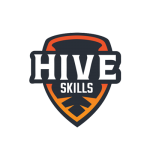FAQ's (Frequently Asked Questions)
Have a question? We might have your answer right here. If you don’t find it—or just want to say hi—reach out to us.
Success in sports comes from a combination of technical skills, tactical knowledge, athletic abilities and soft skills (like mental toughness, winning habits, and coachability). These soft skills are CRUCIAL because they impact the other three factors. A gifted athlete can underperform due to unmanaged stress. Or, an underdog team with enough tenacity or chemistry can take home a win. Without optimizing soft skills, athletes or teams will never reach their full potential.
We evaluated 6 major categories of soft skills relevant to sports.
- Performance Mentality – Who is the player as an athlete?
- Emotional Sports Intelligence – How well does the player know himself/herself and understand others?
- Winning Habits – How does the player act?
- Leadership & Interpersonal Skills – How does the player interact?
- Responses to challenges – How does the player react?
- Coachability – Is the player coachable?
The HIVE Skills IQ generates an in-depth report that can be understood at-a-glance, assigning a numeric score to each category as well as an overall score. This approach gives coaches a clear picture of where an athlete currently ranks across the full range of soft skills. A coach can compare recruits’ scores with open positions on their teams, reference scores to better understand how to manage individual players, create development plans, and more.
There is no optimal score. Players and coaches may want to develop particular skills based on what the assessment reveals, but scores themselves are not good or bad.
Successful teams need diversity to succeed. A team filled with nothing but strong leadership personalities wouldn’t fare any better than a team of nothing but forwards, or quarterbacks. The optimal answer depends on what an individual team, or even situation, needs. Take this example: one measure of Interpersonal Skills, called ProSocial/AntiSocial, evaluates how a player acts towards teammates. A high ProSocial score indicates a good teammate; someone who interacts in a positive, encouraging way with little complaints. But a ProSocial athlete may lack the competitiveness, aggressiveness, or blunt demand for excellence that an AntiSocial player might bring. The best approach is for coaches to fill their set of roles with the right mix performance mentalities to create an optimal team dynamic.
Reading your results may be exhilarating, revealing, uncomfortable, or even painful. If you see something you’re unhappy with, that’s okay. Like hard skills, soft skills can be developed. They can be used as a benchmark. The more honest you are, the better your chances for optimizing your soft skills, and therefore, your overall athletic performance. And, because you get to choose what soft skills to grow, you have great influence over the kind of athlete you will ultimately be.


